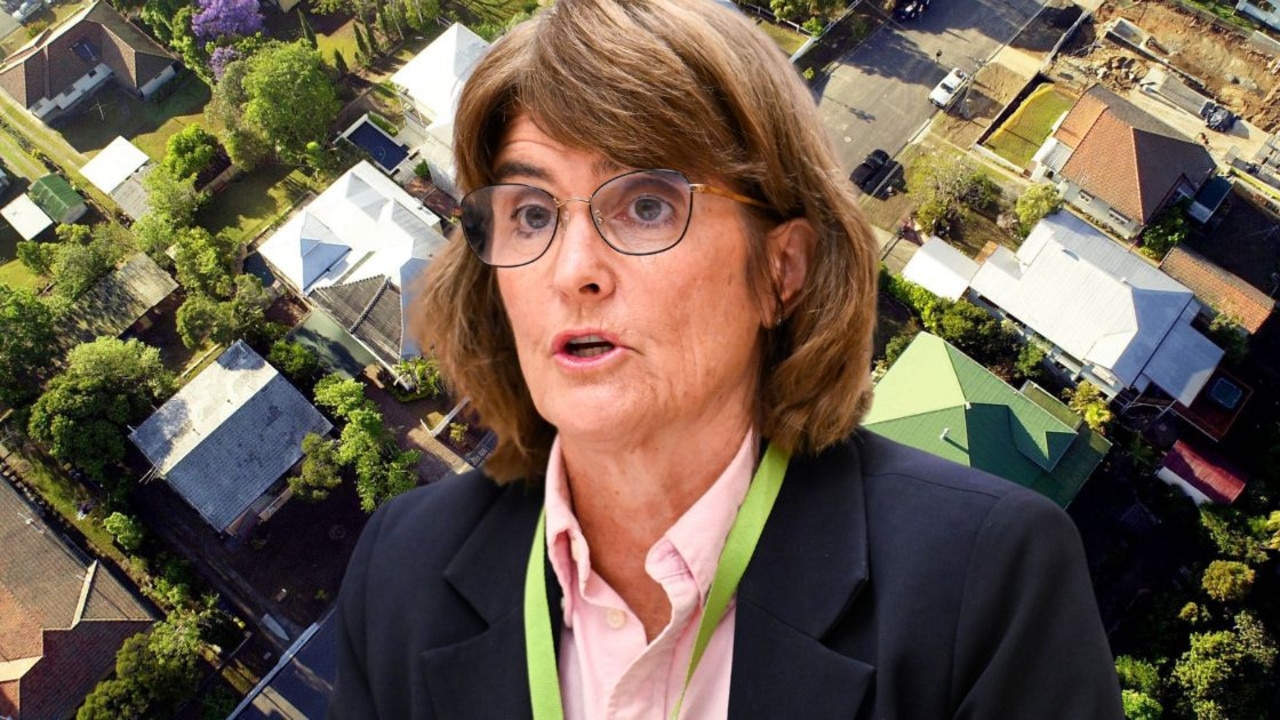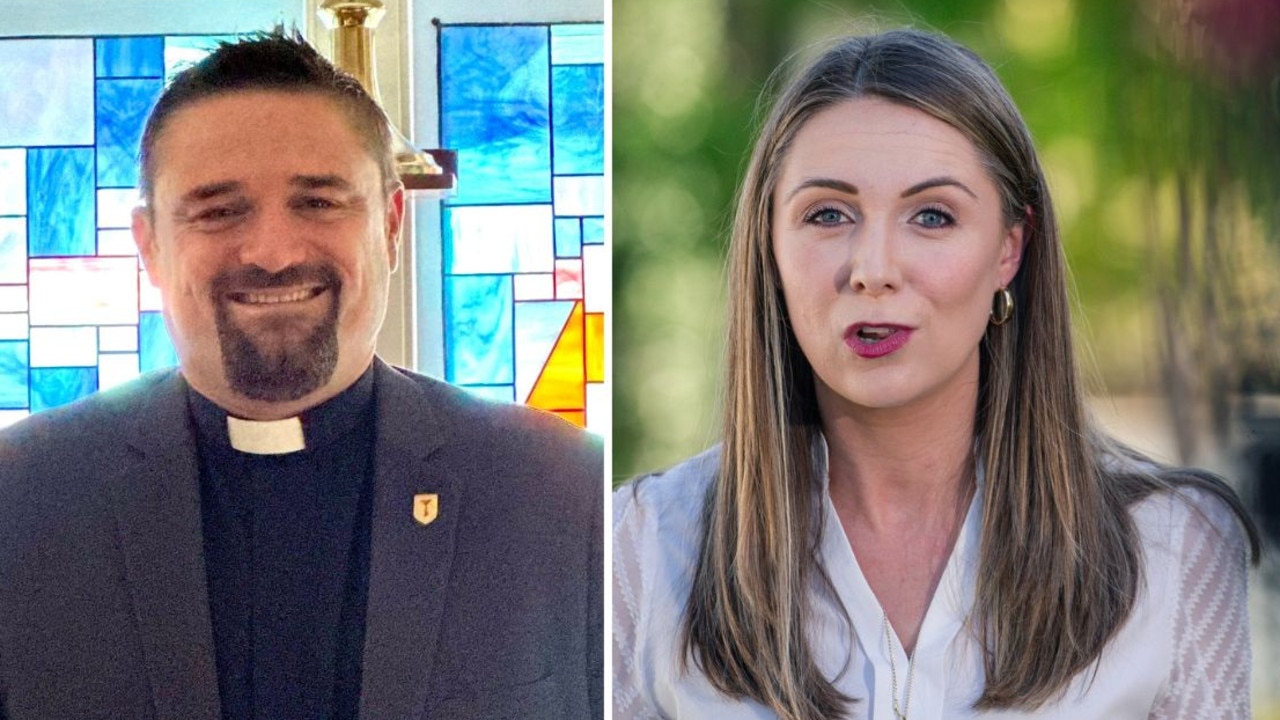Unifying the Liberals won’t be easy
AUSTRALIAN politics has never seen the likes of it before. Dennis Atkinsgives a blow-by-blow account of this week’s leadership turmoil and details why Scott Morrison won’t get long to celebrate his victory.
CM Insight
Don't miss out on the headlines from CM Insight. Followed categories will be added to My News.
MATHIAS Cormann didn’t want the events of this week to occur and would have, in any other circumstance, done everything to avoid them.
However, by the middle of this week he decided his party had reached a crisis point that demanded resolution.
Cormann had voted for Prime Minister Malcolm Turnbull the day before but he watched the following hours with a sense of dread.
Unlike most other vanquished challengers, Peter Dutton did not back off; quite the opposite.
He gave a feel-good news conference in the grounds of Parliament and even said he would have rather seen the asylum seekers on Manus Island and Nauru come to Australia — a gobsmacking claim in light of the former Home Affairs Minister’s time in office.

Tony Abbott and his cheer squad took the first 45-38 Turnbull win as genuinely pyrrhic — having come at cost that was at once too heavy.
Abbott had never forgotten or forgiven Turnbull for his strike in September 2015. Their relationship which was never beyond cool, went from distrust and paranoia to hatred.
As Turnbull disappointed the Liberal Party’s base — which is further to the right than the electorate at large — the feedback became too loud to ignore.
Urged on by media backers like Ray Hadley, Paul Murray, Andrew Bolt and Abbott’s old chief of staff Peta Credlin, the anti-Turnbull forces never let an opportunity pass.
Turnbull was too isolated and lacking in self awareness to understand that what was happening was not some orchestrated conspiracy but an organic call for change in direction and policy.
Even those most loyal to Turnbull thought he was verging on the unhinged in the paranoia that was coming from his office.
“They think this is all being schemed and played by spooky media voices,” said one Liberal who heard the full conspiracy theory. “Yes things did descend into madness but it was all our own work.”
by midweek, it’s mayhem
The fraying and fracturing around Parliament House reached a crescendo by midweek, demonstrating the Tuesday party room meeting had resolved nothing and something would have to give.

People were jumping at shadows every now and then; no one knew what was going on.
“It was like walking into a party where everyone had been drinking for hours,” was how one MP described Tuesday night.
Assessing where they were, the Dutton forces could see a solid base in the mid to high 30s but as they rang around they found it was going to be hard to move any further forward.
In the phone calls they argued the result of the Longman by-election was no one off. The collapse in the Liberals’ primary vote of about 10 per cent would be replicated in outer suburban and provincial electorates.
The Longman outcome indicated at least nine or 10 LNP members could lose their seats and the Dutton camp thought this doom-laden message would be enough to scare people across. But they had underestimated the deep antipathy to the insurgent attack that’s been waged for most of this term.
It was not enough alone, and neither was a direct reminder that Turnbull was disliked by Liberal rank and file members for everything from his social policy views to his supposed commitment to action on climate change.
In the face of this, they decided it was time to engage in some unpleasant guerilla warfare and went in hard — described by others as brutal.
MPs and Senators were leant on with hints of recriminations and barriers to progress within the party. It got some people’s backs up but others wondered if this would ever end.
cormann faces facts
By Wednesday morning, Cormann had reached a heavy-hearted conclusion. If the party did not move on from the Abbott/Turnbull wars an election loss would be not just certain but monumental and recovery would be far away. He’d already harboured deep concerns about Turnbull’s inability to unite the Liberal Party and repel the Abbott insurgency.
After the Tuesday vote, the Finance Minister became a sounding board for colleagues.
Four Cabinet ministers told him the issue had to be revisited and a number of bewildered and exasperated backbenchers backed the now growing sentiment for another ballot.
Cormann canvassed things with his Senate deputy Mitch Fifield, and Minister for Jobs and Innovation Michaelia Cash.
They’d also voted for Turnbull but agreed with their colleague something had to give.
“If we keep going the way we are, we will have nothing but ongoing destabilisation and an inward focus,” Cormann told his fellow Liberals.
There was agreement the Turnbull/Abbott wars could not be allowed to go on — just as the interminable battle between John Howard and Andrew Peacock in the 1980s and early 1990s had to be resolved.
A key point in all of these discussions was that generational change was needed and, by early Friday afternoon, it was felt Scott Morrison, 50 earlier this year, and the 47-year-old Josh Frydenberg represented just that.
Some Liberals close to the outgoing prime minister were yesterday muttering darkly about Cormann and his two Cabinet colleagues, saying if they hadn’t intervened on Thursday morning things might have been different.
Cormann rejects this notion, saying he didn’t move because he wanted to back Dutton necessarily or move votes. He just wanted a resolution and he felt this was the only way to achieve that.
“I get absolutely no pleasure from any of this at all,” he said yesterday.
misreading the signs
In Team Dutton, the move by Cormann was at first cheered.
They thought it had all but sealed things for their champion.
This overconfidence did not last long. By dinner time on Wednesday it was clear the Dutton forces would have to move quickly to keep their votes in place.
Talk of a third candidate — at that stage it was still assumed Turnbull would remain in the ring — began to increase and Morrison was seen as that person.
It was claimed Michael Photios, a NSW Liberal Party number cruncher and moderate strongman, was in town doing Morrison’s numbers. He was around and he was offering advice but the Treasurer’s call centre had a wider membership, led by Defence Industry Minister, Christopher Pyne.
The Dutton camp were showing signs of nerves.
They rightly worried that not only might they fall short of the magic number of 43 — the party room majority — some of their support regarded previously as solid might slip away.
The birdcage was being rattled fiercely and the Dutton camp spread some fake news. They were going to move on Wednesday night and they had the numbers. These were both concoctions and aimed at spooking some who might have been thinking about switching to Morrison.
The Senate adjourned and the Liberals from that chamber spread out to restaurants around Canberra. Some Senators began calling the Whip Nola Marino wondering if they should head back and House members, about to head out themselves, were also curious.
Marino checked with the Prime Minister’s office where Turnbull was having a drink with loyal ministers including Frydenberg and Pyne. She was told to tell everyone to go home and go to bed.
dutton’s bluff is called
Thursday morning had a sense of unfinished business and foreboding. Dutton stepped forward and said he’d called Turnbull, told him (wrongly) he had the numbers and wanted another meeting.
“Prove it,” he was told.
Soon after, Cormann, Cash and Fifield made their move and everyone thought it was all over for Turnbull.
This was a serious misreading of Turnbull’s tenacity and determination to stop Dutton who he saw as a wrecker and a puppet of Abbott and his media cheer squad.
Turnbull was being chiefly aided and advised by his wife Lucy and former Howard confidante Arthur Sinodinos — on leave from the Senate battling cancer for almost a year — who had driven from Sydney to lend a hand.
Along with his closest staffer, Sally Cray, this was the Turnbull inner sanctum.
They agreed the best way to stop Dutton was to deny his challenge anything — no room and no opportunity.
It was decided that no party room meeting would be called without verifiable proof of the 43 names they said were required.
They also moved to shut down Parliament — it would have been impossible for the Government to hold Question Time after more than a third of the ministry had quit.
This freed up their preferred candidate, Morrison, to devote himself to mustering support.
The fact it took the Dutton camp until midmorning Friday to secure the last of the 43 votes should have told them they were going to struggle in the party room.
There remained a solid minority — 40 voting MPs which was a number larger than many believed likely, especially those in the Dutton camp — who were not just loyal to the Prime Minister but also white hot with anger at what had happened in Canberra this week.
“Threats”, “bullying” and “intimidation” were mentioned by many Liberal MPs, especially moderates, and they called on their colleagues not to reward treachery.
“We have put down this terrorist movement from these woodchuck amateurs,” said one of the Morrison lieutenants.
“They came in swaggering with confidence and then were chased out of town in under 48 hours. They’re fools.”
healing the great divide
Morrison, his deputy Frydenberg and other senior Liberals are uniting around the idea of unity at the moment. This is easily said and they will have to make a determined effort to make sure any lingering wounds do not remain open.
The talk of this being an ideological split is only true up to a point.
The divisions, according to a majority of Liberals from all groups and persuasions, were mainly personal — in the sense of the Abbott/Turnbull wars that everyone now wants to see the back of.
There was also a widespread split on emissions policy which is why Turnbull couldn’t find a solution to the vexed issue of the National Energy Guarantee.
Even Frydenberg, the minister who worked tirelessly to round up support for this plan among MPs, the states and industry, was telling colleagues this week he thought the NEG was now the poisoned chalice of Australian politics.
“I don’t think we (the Coalition) can ever resolve emissions policy,” Frydenberg told colleagues.
“There’s not going to be any point revisiting this can of worms.”
The healing game is an essential one in politics, particularly when there’s been a bruising experience like that seen in the past fortnight.
The goodwill expressed by most Liberals might give them a chance, but there have been few governments with as much work to do and as many difficult challenges as this one.
Morrison, Frydenberg and their Coalition partners will need every lucky break than can get.
dennis.atkins@news.com.au
Dennis Atkins is The Courier-Mail’s national affairs editor


